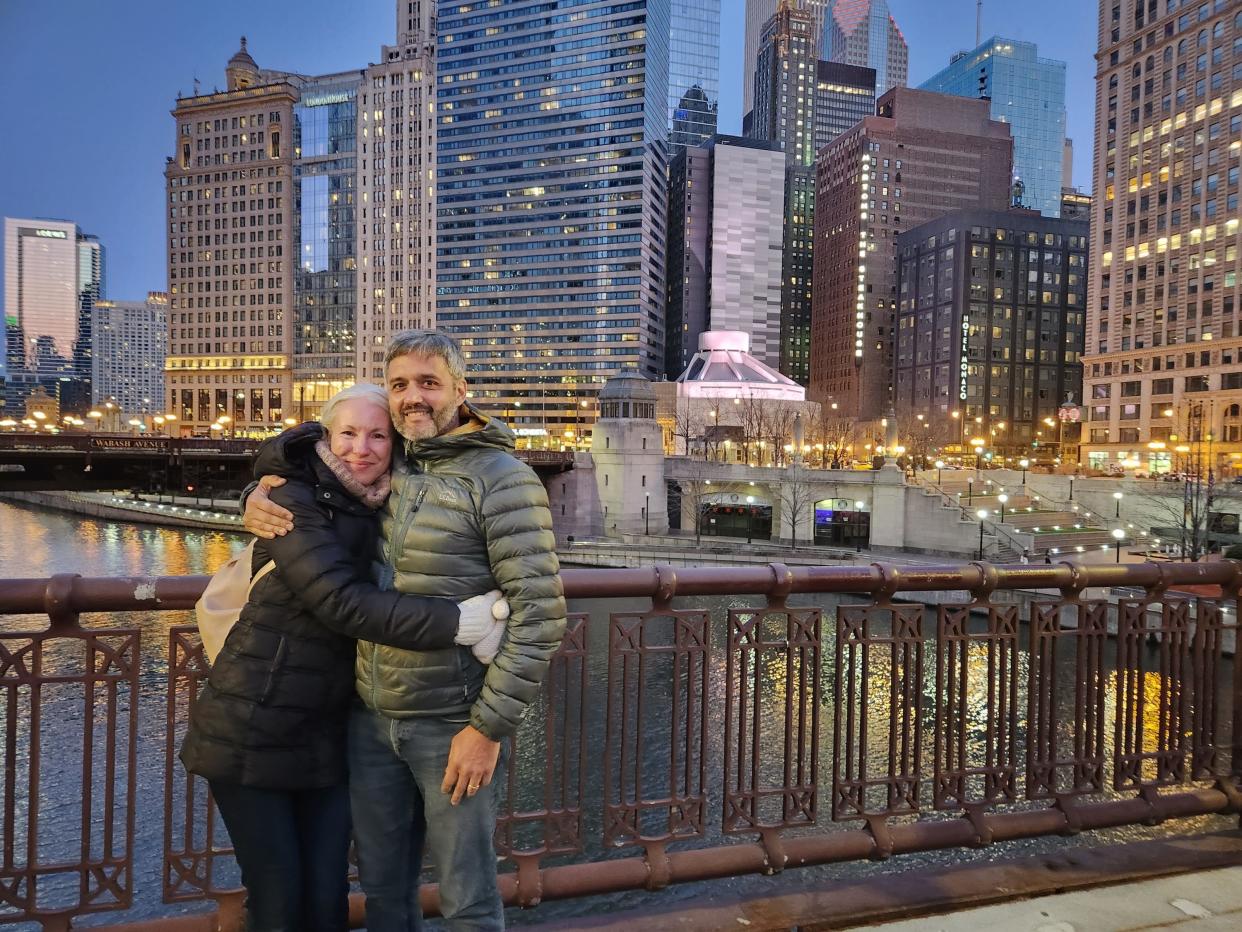I'm afraid of flying but travel anyway. Here are 3 things that help combat my aerophobia.

For years I suffered from severe fear of flying.
I would get anxiety, body shakes, and diarrhea while traveling by plane.
Three small changes made flying more bearable for me.
My family travels several times a year: visiting relatives in California, Montana, and Massachusetts; vacations to beaches and national parks; college visits with our teenage sons; weddings; memorial services.
For 30 years, however, I've suffered from a severe fear of flying. I can fly, but getting on an airplane involves hours of full-body shaking, extreme diarrhea, and overwhelming anxiety coupled with dark bouts of depression leading up to any flight.
It appeared out of nowhere
This fear, as irrational as it is debilitating, appeared suddenly, soon after I graduated from college. As a young person, I would have put travel-lover as my top self-defining feature, but the more years that passed since my fear of flying began, the less I sought out travel opportunities.
It's certainly limited how my husband and I explore the world with our children and even limited how often I see family or friends. I missed my stepfather's 50th birthday celebration because I couldn't get on the plane.
People always want to know whether a traumatic experience set off this fear, but it wasn't like that. Yes, I've been in bad weather in small planes that have needed emergency clearance to land. And once, while visiting family in India, we flew through a monsoon; our pilot made the situation so much worse by announcing at regular intervals that their competitor airline had to make emergency landings while our poor plane was thrown up, down, and sideways.
Honestly, my least favorite flight is the one I do most often, between Pittsburgh and Boston. The weather is never quite right, and the 75 minutes in the air is just a bit too long for me as a "short flight."
I did so many things before flying
The strategies I used to depend on were based on manufacturing control over things out of my control. Strategies like checking the weather sites hourly leading up to a trip. Or asking the flight attendant immediately upon boarding whether they were expecting turbulence. I always bought window seats and stared out the window at the wing for every second in the air, as if my concentration and vigilance were the only things keeping the plane aloft.
When we'd land, I was flooded with the most euphoric adrenaline — like I'd just won an Olympic medal — because I had done this thing that most people do without any concern or effort. Unless you share this phobia, you have no idea what each flight cost me.
Thirty years is a long time to feel terrified about something so mundane and safe. A few years ago, I sought out a therapist to help me with this struggle. He asked me what I was so afraid of, and I told him it was imagining those long moments when the plane was plummeting to the ground. I didn't think I could face them. What he said in response changed my life.
"You are in control of what you do with those terrible last minutes," he said.
Here are 3 things that have helped me control my fear of flying
Friends and family like to list statistics for me. I know flying is safer than driving. I know the number of flights per day around the world is ridiculously large, and all those passengers and crew arrive at their destinations without harm. But that's the thing about irrational fears: rational reasoning doesn't help.
What I needed — and received from a single session with that therapist — was a sense of control. So here's what I learned and what's been a game changer for me.
I know that if the plane goes down, while I have no control over the outcome, I have control over how I spend those last moments. I can hug my loved ones if they're with me. If I'm alone, I can wrap my arms tightly around myself and fill my mind with images of those people I love most: my husband and two children.
Instead of interpreting the physical symptoms of anxiety as signs of actual danger, I can name them for what they are: My legs are shaking. I'm lightheaded. I feel sick to my stomach.
When the plane bounces through turbulent air, I tell myself, "I feel scared, but what I'm doing is actually very safe."
It's not that I now fly worry-free. But I pay little attention to the weather, and I no longer sink into doomsday darkness during the days leading up to a trip. I still get diarrhea, but Imodium helps. On some flights, I'm able to read or listen to music. I still stare out the window, but it has nothing to do with holding up the plane; instead, it's how I pass the time, studying the clouds or watching the changing landscape below. If I have room in my carry-on, I pack a small blanket to pull snugly over my lap. Sometimes, I find peace with the turbulence.
These are small changes. They've made a huge impact on my life.
Read the original article on Business Insider


